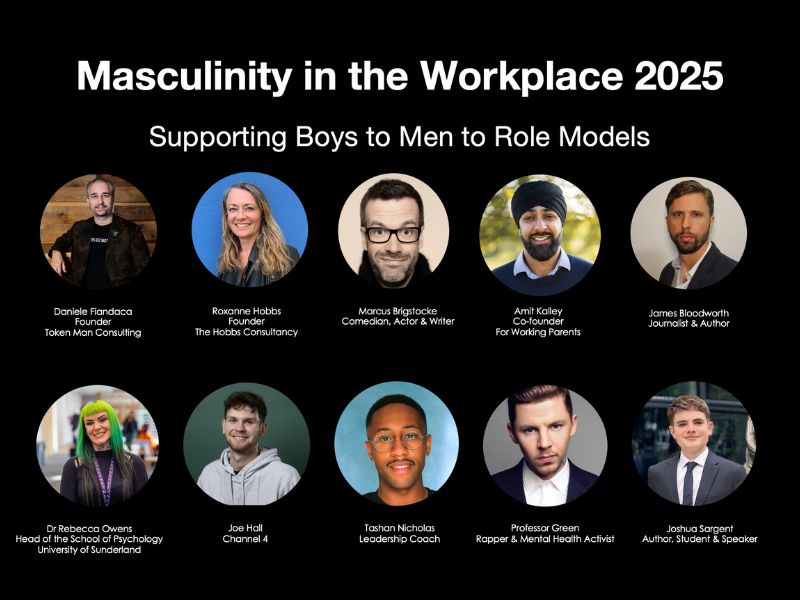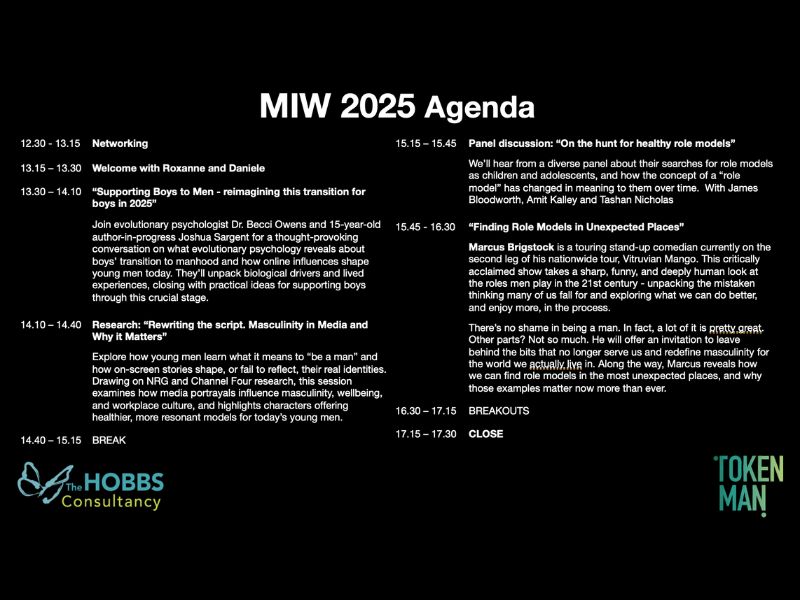
Article by Prof Sophie Hennekam, Audencia
During the COVID-19 pandemic many countries enforced mandatory stay-at-home orders. Lockdowns severely disrupted both the professional and the family spheres. We examined whether, and how, self-identity changed during lockdown in a study where 14 working parents kept a daily diary over a period of seven weeks of mandated home lockdown in France.
At the start of the lockdown, participants experienced various challenges to their identity, leading to considerable self-reflection. Over time, they gradually began to view their new situation as an opportunity to change their behavior from being aligned with social norms and expectations, towards something that reflected more on their aspirations and beliefs of who they wanted to be.
At the beginning of the compulsory lockdown, the participants were adapting to a completely new way of life in which they had to work from home while looking after their children. Almost all of them had no action plan for the new situation, as this episode of mandated domesticity was supposed to last only two weeks.
Participants who were now working from home reported that their professional and private lives had completely merged, and that the blurred boundaries between their separate identities as workers and parents were threatening their overall well-being. The participants did not create enough space between work and parenting, and continued to be both available for a phone call during typical working hours and for the parenting demanded by their children.
Rather than establishing new norms and rules regarding what parenting and work look like during lockdown, the participants seemed to continue to work in the same capacity as before, and in some cases overworked to make up for lost work hours due to caregiving. Consequently, those participants who were trying to navigate work and childcare and/or home-schooling responsibilities reported an increase in fatigue and stress.
The participants who experienced a significant decrease in their professional activity or whose activity ceased altogether experienced significant work-related identity threat. These participants felt robbed of their work identities, leading to feelings of loss. The participants who had lost their jobs continued to mourn the loss of their work-related identities and even experienced a certain level of grief. Moreover, they reported feelings of anger and, rather than accepting the situation as beyond their control, they tended to resist it.
When the government announced that stay-at-home orders would continue for an additional four weeks, the news was not well received, generating further frustration and increased strain on participants. While this period was filled with anguish over the continued lockdown directive, it also appeared to trigger an attitude of making sense of the situation, leading to more reflection about their identities. Participants now expressed a need to take control over the situation and define for themselves what moving forward would look like in terms of their work and family identities. They also reflected on the fact that the continued isolation implied less social pressure around what ‘normal’ behavior looked like, which allowed them more freedom to think about what they, themselves, really wanted.
The participants who were home due to job loss began to make sense about the importance of their work identities to their overall lives. The evidence that emerged suggested that they were adapting well to having more time with their families, and they seemed to grow increasingly ambivalent to the situation and how it had affected them both professionally and personally.
They reflected on who they wanted to become after the lockdown, which was in most cases very different from who they considered themselves to be before the lockdown.
The participants who were caring for their children while working from home began to embrace an identity and lifestyle that felt more authentic and was less focused on societal norms. Participants who experienced any degree of job loss also began to express how the lockdown was fostering identity change and expressed a greater sense of appreciation for family and leisure time. Almost every participant started to construct a revised sense of self that reflected a more flexible approach to integrating both work and family identities based on their own terms rather than what society expected of them.
The participants highlighted that while they were looking forward to the end of the lockdown, it had also led to some unexpected positive consequences in the form of deep reflections about their own needs and wishes, leading to a redefinition of their work and family identities. Participants reconstructed a renewed sense of self by rejecting old ways of working in place of new practices in which idealised ‘worker’ and ‘parent’ norms were relaxed in favor of more authentic identity expressions and a greater balance between work and family identities.
To conclude, the lockdown initially led to an identity threat for working parents. Throughout a period of seven weeks, the participants of our study started to use the lockdown period to reflect upon and revise their work and family identities that better aligned with their internal beliefs.
 About the author
About the authorSophie Hennekam is professor in Organizational Behavior at Audencia Business School and Head of Research for the Management Department. She studies issues related to diversity, equality and inclusion.
November
13nov10:0016:00Start Up and Small Business Expo | Polka Dot Events/ Avidity Hotels
13/11/2025 10:00 - 16:00(GMT+00:00)
Best Western Rockingham Forest Hotel
Rockingham Road, Corby, NN17 2AE
Come check out the Start Up and Small Business Expo, where you can discover new businesses and network with fellow entrepreneurs! Start Up and Small Business Expo Welcome
Start Up and Small Business Expo
Welcome to the Start Up and Small Business Expo! Join us at the Rockingham Forest Hotel for a day filled with networking, learning, and growth opportunities for your business. Connect with fellow entrepreneurs, discover new products and services, and gain valuable insights from industry experts. Whether you’re just starting out or looking to take your small business to the next level, this event is the perfect place to be. Don’t miss out on this exciting opportunity to expand your business horizons!
13nov13:0014:00The Rebellious Business Networking Event | Rebellious Business
13/11/2025 13:00 - 14:00(GMT+00:00)
No beige small talk. No boring intros. No salesy nonsense. Just real people, genuine conversation, and business magic waiting to happen. What’s This
This isn’t your average “so what do you do?” Zoom snooze-fest.
This is The Rebellious Business Networking Event — the one that refuses to play by the boring corporate rules.
We’ve ditched the stiff intros, awkward icebreakers, and those weird, staged elevator pitches that make everyone’s soul leave their body.
Instead, you’ll get one hour of genuine connection, plenty of laughs (and probably a few spit-out-your-tea moments), and a room full of humans who actually get it.
Zero Corporate SH★T – Be yourself. That’s literally the point. No pretending. No LinkedIn voices.
Connection-First Games – Fun breakout challenges that help you meet people naturally (and remember their names afterwards).
Real Conversations – None of that “so… what do you do?” small talk. You’ll actually talk about stuff that matters.
Collaboration Energy – Meet your next client, partner, or business bestie without it feeling forced.
Surprise Rebel Moments – You might win something. You might laugh-snort on camera. Either way, you’ll leave buzzing.
You, if you’re a coach, consultant, creative, service provider — or just a business rebel who’s over the fake, buttoned-up networking scene.
We’re talking about people who’d rather connect than pitch. People who build businesses with personality.
If that sounds like you, welcome home.
We’re Cordelia & Caroline, your rebellious ring-leaders.
We met at a networking event (yep, the irony’s not lost on us), became business besties, and built Rebellious Business, a company for entrepreneurs who are bored of the beige.
We’ve hosted thousands of rebels, helped countless people find clients, collaborators, and even business “love stories”… all through connection that actually feels human.
This isn’t just a networking event. It’s a movement for people who want to build businesses their way, real, rebellious, and full of personality.
Come hang out, meet your people, and see why rebels never network alone.
19nov10:0013:00MenoMinds – Free Training for Women in Business | Menospace & Minds That Work
19/11/2025 10:00 - 13:00(GMT+00:00)
Introducing MenoMinds – Free Training for Women in Business We’re excited to share MenoMinds, a fully funded programme created by Menospace and
We’re excited to share MenoMinds, a fully funded programme created by Menospace and Minds That Work, supporting women in business, freelancing, or entrepreneurship through the emotional and mental challenges of menopause.
Wednesday 19th November | 10:00am – 1:00pm (UK)
Live on Zoom | 💷 Free (funded by NEBOSH’s Social Purpose Programme)
Menopause can affect confidence, focus and wellbeing — MenoMinds helps you take back control with practical tools and a supportive community.
You’ll explore the CARE Framework:
Includes a digital workbook and invitation to monthly community groups on sleep, nutrition and stress management.
Freelancers, entrepreneurs, and women in small or micro-businesses (under 50 employees).
Facilitators: Haley White (Menospace) and Victoria Brookbank (Minds That Work)
19nov12:3018:00Masculinity in the Workplace - 2025 (In-person)
19/11/2025 12:30 - 18:00(GMT+00:00)
Conway Hall
25 Red Lion Square, London, WC1R 4RL
Brought to you by Token Man and The Hobbs Consultancy. Welcome to Masculinity in the Workplace, designed specifically to

Welcome to Masculinity in the Workplace, designed specifically to engage men with creating inclusive cultures. Marking International Men’s Day, the objective of our event is to give men both the reason and the skills to lean into the conversation, while also providing women and non-binary people with the confidence to engage more men in culture change. Because ultimately we can only make real change by working together.
Date: Weds Nov 19 2025
Time: 12.30pm to 6pm
Location: Conway Hall, 25 Red Lion Square, London, WC1R 4RL
Our speakers will share their insights and experiences, shedding light on the evolving dynamics of masculinity, leadership and culturein diverse work environments. You’ll have the chance to ask questions, participate in interactive sessions, and network with like-minded professionals.
The theme for this year is ‘Supporting Boys to Men to Role Models’. This year’s event will seek to understand the concerns and barriers that are in the way for boys and men, particularly looking at key inflection points in their lives. It will equip parents, leaders, friends and persons of significance in the lives of young men with the tools for self-reflection, effective role modelling and courageous conversations..
It will suggest that status-seeking and risk-taking behaviours are innate as boys become men, look at how this shows up for boys in 2025 and question what support could help these boys have a more positive initiation in to adulthood so that they are ready for the workplace. We know that there is a reverse gender pay gap and that schools aren’t preparing students in the same way to enter the professional workplace – what needs to be done?
We will look at the behaviours that are role modelled by men once they are in the workplace. Is it healthy for us to look for male role models, or is a search for positive behaviours more effective? What can we learn from how men are represented on screen and in the media? And what can we do to support our men once they are in the workplace?
This site is for the in-person experience. Otherwise you can register for the online version here.
FYI – lunch will not be provided

This event is for anyone passionate about creating more inclusive, equitable, diverse and human workplaces, and we welcome attendees of all identities and expressions.
Historically, our audience has included around 60% men and 40% women or non-binary people, with a wide range of roles and lived experiences.
This year, we’re especially keen to welcome CEOs, HRDs, CMOs, Inclusion & Diversity leaders, People & Culture teams, and anyone working to engage men more effectively in their organisations. Whether you’re a parent, people manager, or someone invested in systemic culture change, this event is for you.
By attending, you’ll be joining a growing community of people committed to reshaping masculinity, unlocking allyship, and building workplace cultures where everyone can thrive – from boys and young men to senior leaders and everyone in between.
20novAll DayDigital Transformation Conference
20/11/2025 All Day(GMT+00:00)
Mercure London Earls Court
London
Ready to transform your business in the digital age? The upcoming Digital Transformation Conference UK promises an exceptional opportunity for leaders who want to accelerate change, embrace innovation and shape
Explore how industry leaders are redefining digital and business transformation. Learn proven strategies, gain fresh perspectives, and connect with peers shaping the future of technology and enterprise. Tactical & practical content to drive your transformation efforts.
Throughout the day, delegates can look forward to a diverse programme of content exploring every aspect of digital transformation, business change, and innovation. Hear best practices, lessons learned, and insights into real-world challenges from leaders driving progress across digital, technology and IT.
If you’re a C-suite leader, head of innovation, transformation or IT, this is the place to be. Whether you’re just starting your journey or looking to scale up, you’ll leave with fresh ideas, new contacts and a renewed sense of direction.
